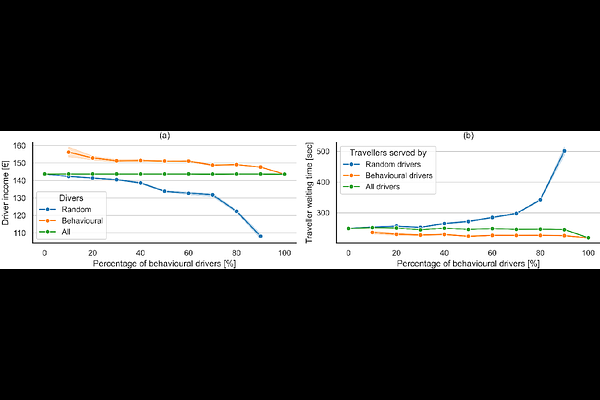Ride Acceptance Behaviour Investigation of Ride-sourcing Drivers Through Agent-based Simulation

Ride Acceptance Behaviour Investigation of Ride-sourcing Drivers Through Agent-based Simulation
Farnoud Ghasemi, Peyman Ashkrof, Rafal Kucharski
AbstractRide-sourcing platforms such as Uber and Lyft offer drivers (i.e., platform suppliers) considerable freedom of choice in multiple aspects. At the operational level, drivers can freely accept or decline trip requests that can significantly impact system performance in terms of travellers' waiting time, drivers' idle time and income. Despite the extensive research into the supply-side operations, the behavioural aspects, particularly drivers' ride acceptance behaviour remains so far largely unknown. To this end, we reproduce the dynamics of a two-sided mobility platform on the road network of Delft using an agent-based simulator. Then, we implement a ride acceptance decision model enabling drivers to apply their acceptance strategies. Our findings reveal that drivers who follow the decision model, on average, earn higher income compared to drivers who randomly accept trip requests. The overall income equality between drivers with the acceptance decision is higher and travellers experience lower waiting time in this setting.